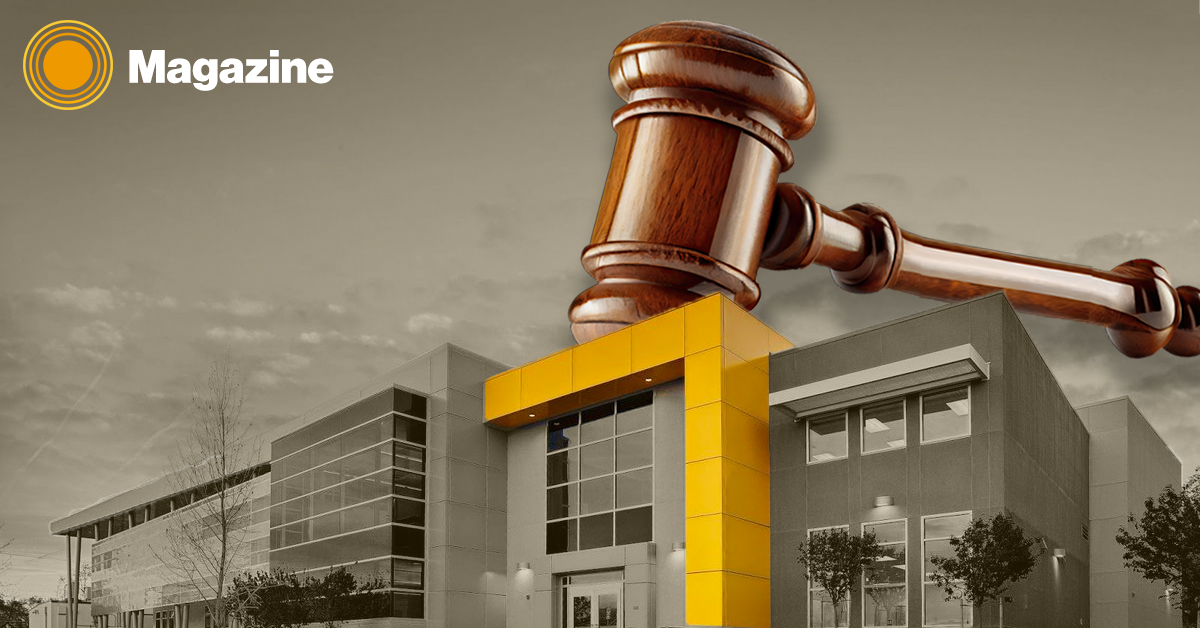Last month, the California Supreme Court finally weighed into a controversy more than a decade in the making that forced the ouster of the San Joaquin Valley’s most visible educator, sparked a probe by Federal investigators, and centered on an otherwise banal subject: construction contracts.
The state’s court ruled against Fresno Unified School District and one of its contractors, Fresno-based Harris Construction, in its long-standing legal battle waged by contractor Stephen Davis.
While media reports distilled the high court opinion to mean that justices found the contract between the school district and its contractor “illegal,” the opinion offered a slightly more nuanced view.
California Supreme Court justices rejected one legal route to evaluating the contract, resolving a highly-technical issue that opens the door for arguably the juicier element of the 11-year-old lawsuit levied by Davis to proceed.
After a decade navigating California’s legal system, we are presented with opportunity to understand how the state’s third-largest school district found itself in the middle of a complex legal spat.
For virtually the entirety of the decade-long battle, Harris Construction representatives have been tight-lipped about the controversy. For the first time, they’re speaking about it exclusively with The Sun.
What is a lease-leaseback?
The origin of California’s lease-leaseback law dates back to the 1940s and the Baby Boomer generation that followed over the coming decades, bringing a surge of school age children to the state with not enough schools to educate them in.
In 1957, the California Legislature created the lease-leaseback system in the state’s Education Code, which allows a school district to lease its land to a builder for $1 per year, and the builder then constructs the buildings on that land. Developers would lease the newly constructed facilities back to the district to recover costs.
It allowed school districts to build new schools and improve existing facilities while paying for those costs over many years without having to finance debt that would require voter approval.
Tom Duffy, a former school superintendent who is with the Coalition for Adequate School Housing – an advocacy organization for state funding to build new schools and renovate and maintain K-12 schools – told The Sun that using hard bids for projects and taking the lowest total price sometimes would create issues if the goal is to build at the highest standard possible.
On the other hand, the lease-leaseback system gave school districts the opportunity to hand-pick contractors who they thought could meet that necessary high standard while negotiating a price.
“Typically what districts did when they entered into a lease-leaseback agreement, they entered into an agreement for a guaranteed maximum price,” Duffy said. “What does that mean? It means that no matter what happens on that site, the contractor cannot say I need more money like you could under the hard bid.”
In the wake of Fresno Unified’s legal imbroglio, the lease-leaseback system was changed by the California Legislature in 2016 with Assembly Bill 2316, which requires school districts to use a comprehensive best value selection process for lease-leaseback contractors.
The law developed a scoring system for ranking proposals and limited the district’s discretion in selecting lease-leaseback contractors.
AB 2316 also provides protection to contractors that entered into lease-leaseback contracts before July 2015. If a court finds a contract award invalid due to a lack of competitive bidding, the contractor could recover costs from the project except for profit.
Gaston Middle School
In 2010, Fresno voters approved Measure Q, a $280 million school bond measure to aid Fresno Unified’s aging facilities. The measure and political contributions to support it from Spencer and subcontractors close to Harris Construction and another construction firm, Bush Construction, would spur a Federal probe in 2015.
In 2011, Fresno Unified pre-qualified 14 contractors, including Harris Construction, to partner on lease-leaseback projects. That pre-qualification allowed the district to negotiate a project with any of those contractors for lease-leaseback agreements.
Two years later, in September 2012, Fresno Unified agreed to a $36.7 million construction contract with Harris Construction to build the southwest Fresno middle school under a lease-leaseback agreement.
Harris Construction completed the school two years. While the total project cost was $36.7 million, Harris Construction received $1.1 million profit – the fee that the company charged, per the contract.
From 2011 to 2014, Fresno Unified approved 25 projects with lease-leaseback agreements with 11 different contractors. Harris Construction worked nine of the projects.
As part of the Gaston Middle School agreement, Harris Construction had a pre-construction agreement Fresno Unified. The district had Harris Construction serve as an advisor on the project’s planning and development before moving forward with either a hard bid or a lease-leaseback agreement.
According to Duffy, using pre-construction agreements are a benefit for school districts, allowing an outside developer to come in as a consultant before the building plans are finalized.
“People make mistakes. Architects make mistakes. Engineers make mistakes. Those that are the technical engineers and all that, they may miss something” Duffy said. “You’ve got to be prepared as much as you can, and that’s why pre-con is important.”
Fresno Unified was no stranger to such pre-construction agreements as Harris Construction was not the only contractor to be involved with them. Seven of the 11 contractors that worked the lease-leaseback projects had pre-construction agreements with the district.
Having the pre-construction agreement led to allegations that then Fresno Unified Superintendent Michael Hanson gave Harris Construction a “sweetheart” deal on the project.
Harris Construction owner Richard Spencer and President Michael Spencer adamantly denied that allegation in an interview with The Sun.
Hanson was ousted by the Board of Education in 2017 after 12 years in the position. Hanson was under scrutiny of an FBI investigation into the district’s lease-leaseback deals and relationship with two construction firms over an alleged system of pay-to-play.
In 2019, Justice Department officials announced that the four-year investigation was completed with no criminal charges to be filed.
How does Stephen Davis fit in?
Fresno contractor Stephen Davis filed a lawsuit against Fresno Unified and Harris Construction on Nov. 20, 2012, arguing that the district was using lease-leaseback illegally to avoid competitive bids.
On July 24, 2012, Davis’s firm, Davis Moreno Construction, bid $2.5 million as a concrete subcontractor on the Gaston job but was ultimately not selected.
Yet, four days earlier, Davis had retained Carlin Law Group, which has represented Davis on the case for the past 11 years, according to records acquired by Harris Construction during the course of litigation.
Fresno Unified ceased lease-leaseback jobs in 2014. From 2016 to 2023, Davis Moreno Construction has won 18 hard bid projects for the district, totaling over $182 million in value.
The two largest jobs were $47.8 million for Farber Educational Campus and $37.6 million for Herrera Elementary School.
The Spencers, unsurprisingly, would like Davis to drop the lawsuit altogether.
“We don’t understand what it is accomplishing,” Michael Spencer said. “From one perspective I guess he won. He got them to stop lease-leaseback and hard bid the work, and now he’s the largest contractor doing their work. What more does he want?”
The California Supreme Court ruling
Davis’s lawsuit was initially dismissed by the court in September 2013, but the Fresno-based Fifth District Court of Appeal reversed that ruling.
Following that, the trial court granted a motion from Fresno Unified and Harris Construction that the lawsuit became moot when the construction was completed and the leases terminated. Davis appealed that ruling, and the Court of Appeal once again sided with Davis.
Fresno Unified and Harris Construction appealed to the Supreme Court on the basis that the lease-leaseback agreement for Gaston Middle School was deemed a “contract” under Government Code section 53511.
The Supreme Court found that such contracts under Government Code 53511 are inextricably bound up with government indebtedness or with debt financing guaranteed by a local agency, and it ruled that lease-leaseback agreements are not such contracts.
Validation statutes under California law provide a 60-day statute of limitations, after which any challenges to the validity of public agency actions cannot be made.
Fresno Unified and Harris Construction argued that the 60-day statute of limitations made Davis’s challenge moot, but the Supreme Court ruled otherwise.
In its ruling, the Supreme Court specifically said that the question of whether or not the structure of the lease-leaseback contract between Fresno Unified and Harris Construction – while the district was in possession of bond funds – was not the question at hand.
Instead, it noted that the question centered on whether the validation action brought forth by Davis is the appropriate procedural way to challenge the validity of a lease-leaseback project.
Will Harris have to pay back $36.7 million?
A central question floating around the lawsuit is whether or not Harris will be required to repay the $36.7 million, an action known as disgorgement.
Aside from the fact that Fresno Unified is a co-defendant, the Spencers are confident that Harris Construction will not have to pay back anywhere close to that full amount, if anything.
The Spencers presented three main reasons for why they will not be on the hook for nearly $37 million:
- Fresno Unified received a fair value for what it paid for with Gaston Middle School and has never asked to be repaid.
- The vast majority of the money went to the subcontractors who worked the job. Harris Construction made $1.1 million in profit from the Gaston Middle School project, which amounts to a three percent fee for the total cost.
- AB 2316 provided safe harbor provisions that would allow Harris Construction to recover the costs of the project if a court declares the contract invalid, except for the $1.1 million in profit.
What’s next?
With the Supreme Court’s ruling on procedure in hand, the lawsuit now returns to the trial court where the central question of the legality of the lease-leaseback agreement remains.
Michael Spencer stressed that Harris Construction has nothing to hide, and the agreement with Fresno Unified for Gaston Middle School is entirely on the public record.
“Things are good with us,” Michael Spencer said. “We’re busy. Things are moving right along. We just think after 11 years it’s time to bring this thing to a close.”











